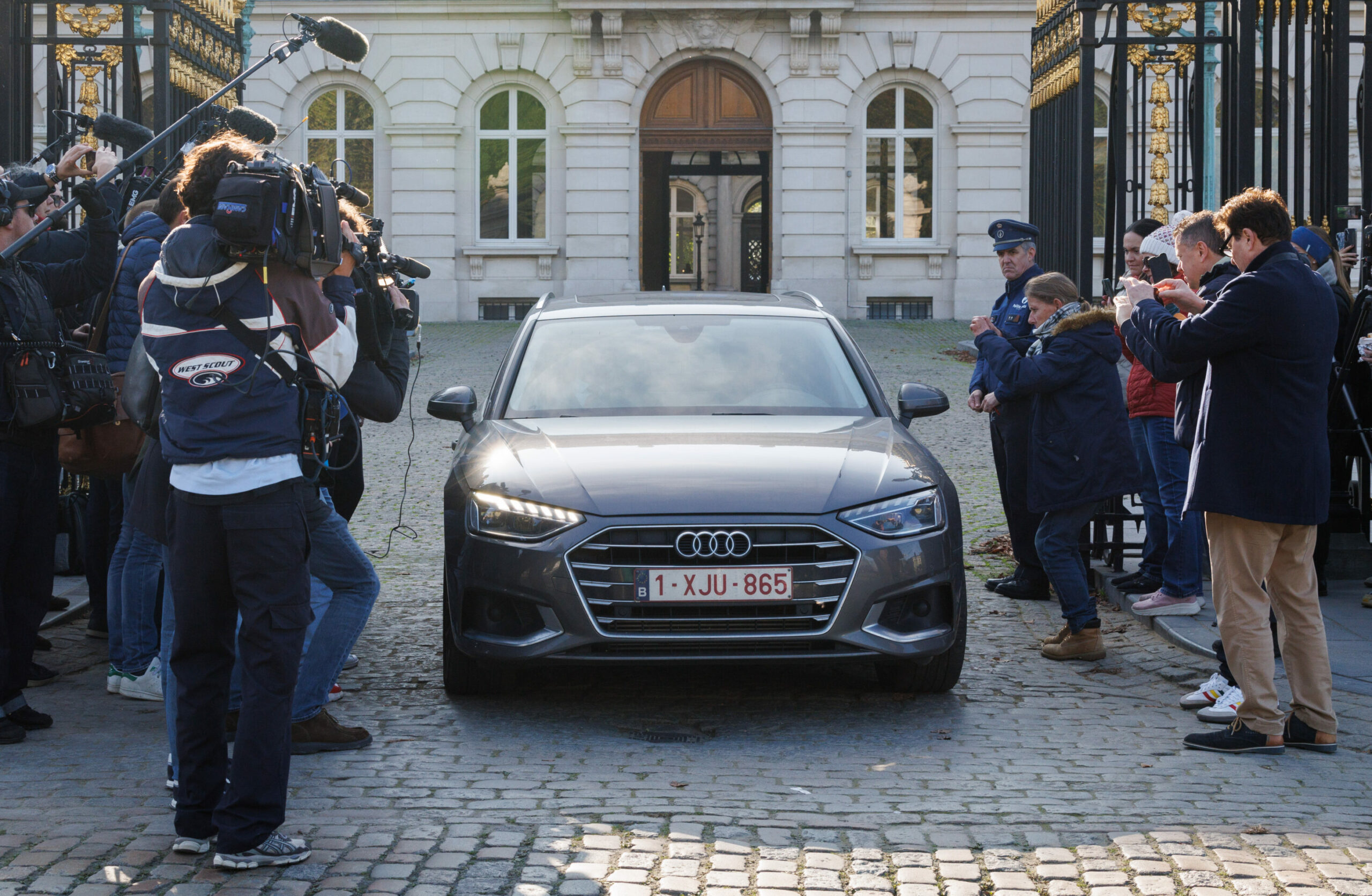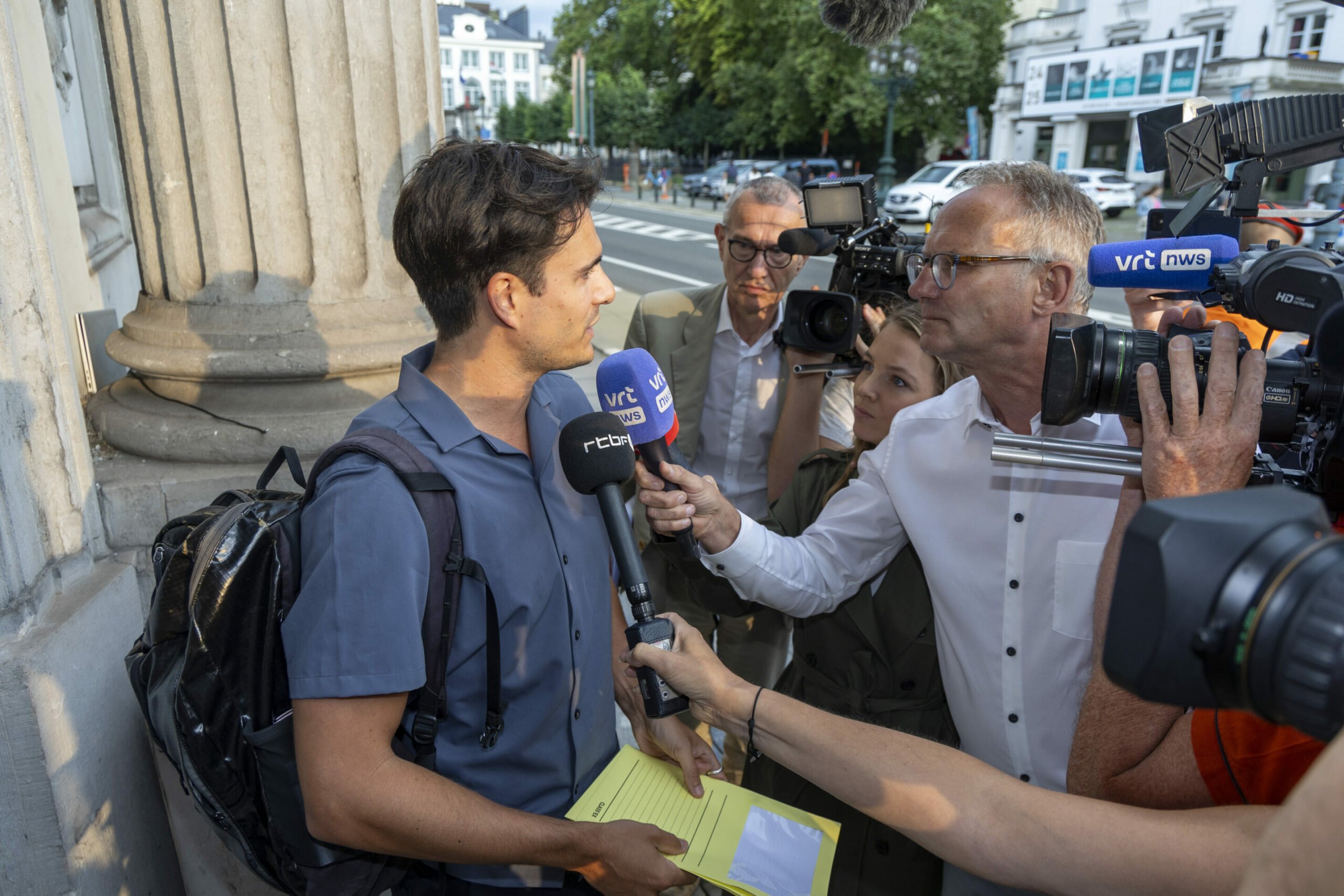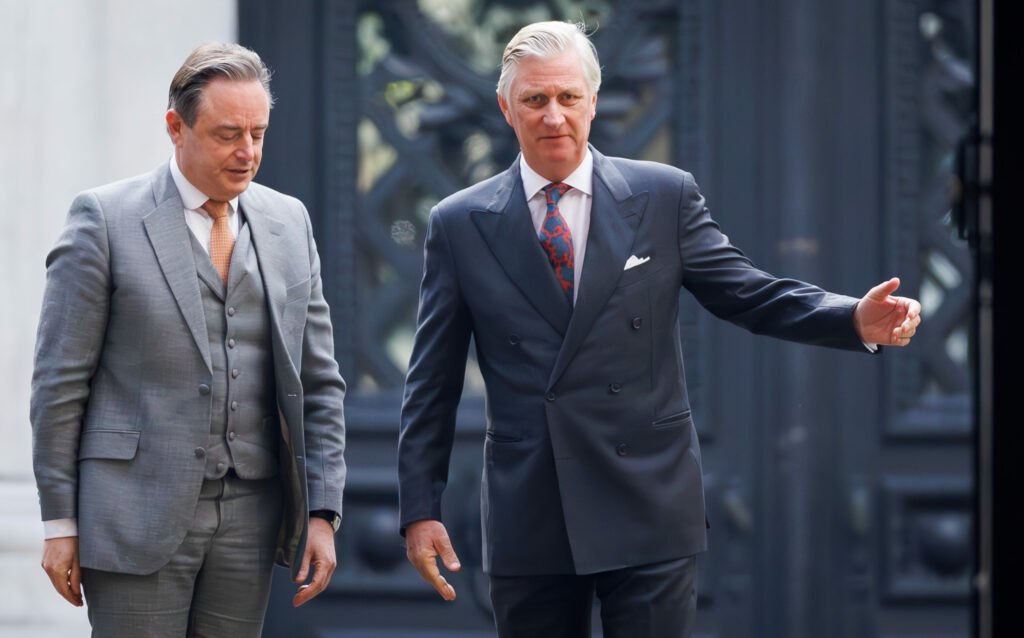It has now been 150 days since Belgium's elections on 9 June, and this week, formation talks for the next Federal Government hit another wall.
Any cautious optimism that prevailed after the clearcut results have faded away. This week, the only left-of-centre party, Vooruit, in the otherwise centre-right 'Arizona' coalition negotiations, has refused to accept Flemish nationalists N-VA's socioeconomic proposals, detailed in the so-called "super-note" put forward by government formator and party leader Bart De Wever.
Less than a week after the local elections, formation talks were further complicated after key issues at the negotiating table – including sensitive issues such as state reform, among others – were leaked to the press. Not long after, De Wever's "super-note" (with measures on pensions, rental income and savings) also made it into the headlines. While it is unclear where the leaks have come from, they have given the overall impression that there is little mutual trust among the negotiators.
On Thursday 31 October, De Wever brought the other four parties (CD&V, Vooruit, MR and Les Engagés) together for another "make or break" moment and a reworked version of the super-note, but without success: Vooruit leader Conner Rousseau rejected it on the grounds that it still did not fairly distribute the economic burden across society.
No alternative
For Rousseau, De Wever should drop the tax cut and provide a bigger wealth tax than the one on the table (a capital gains tax). He added that these socioeconomic reforms must prioritise balancing the budget, rather than giving certain brackets a tax cut.
Vooruit wants a 'budget first' government, but for De Wever, the question is whether there is any point in fine-tuning his "super-note" and its budget again, as he feels the Flemish socialists will seemingly never be satisfied with the balance.
"The frustrating thing about Rousseau's rejection is that there is no alternative to Arizona," one negotiator told De Tijd. Should Vooruit's French-speaking equivalent, the Socialist Party (PS), replace them or be added to the table (as some have suggested), N-VA and MR have already said they will pull out of talks.
Rousseau suggested that a centre-right coalition with Flemish liberals Open VLD could still be formed. Yet that seems unrealistic as it would give the new Federal Government a slim majority of just one seat. At the same, the Flemish liberals are still trying to process and reorganise after having been crushed at the ballot boxes in June.

N-VA leader Bart De Wever leaves in car with a driver after a meeting at the Royal Palace in Brussels on Monday 04 November 2024. Credit: Belga / Benoit Doppagne
De Wever was back at the Royal Palace on Monday for a progress report on the negotiations but he instead handed in his resignation as formator. However, the King refused it and instead gave De Wever until Tuesday 12 November to hold additional consultations.
While Vooruit is being blamed for the lack of agreement by the other parties, Rousseau refused to accept this on Monday. "We always want to take responsibility. Even in difficult moments. But only when the content is right, when the burdens are shared fairly. Fairer choices have to be made."
Countering critics who suggested that Vooruit no longer wants to enter the 'Arizona' government, Rousseau stressed that he and his party still believe in De Wever as federal formator. "We want to be in government, let that be clear. We are not asking for a radical reversal of the note, but a bit more reasonableness and a correct balance."
On Tuesday, Vooruit's outgoing Deputy Prime Minister Frank Vandenbroucke stressed that his party is ready to return to the negotiating table if De Wever is willing to adjust his super-note to better redistribute the socio-economic burdens.

Vooruit's Conner Rousseau arrives for Federal Government talks in Brussels on Sunday 18 August 2024. Credit: Belga / Nicolas Maeterlinck
In for the long haul?
With Belgium's budgetary woes, as well as international pressure for extra defence spending and a non-fully funded tax reform, the future Federal Government must raise about €22 billion. In the current super-note, 95% of the effort should come from pensions, social security, index adjustments, public services and halving development cooperation.
Only 5% is to come from wealth taxes through "shady" constructions – an "unacceptable" balance, Vandenbroucke said on Flemish radio. On 1 September, the leader of Les Engagés Maxime Prévot argued that a new balance should be sought, but MR leader Georges-Louis Bouchez was vehemently against this.
"De Wever told us that this could not be changed, so we cannot start negotiations," Vandenbroucke argued. "But if CD&V leader Sammy Mahdi has now been told that some shifts can still be made, this has to be clarified. It is absolutely necessary to draw up a budget and implement just reforms as a matter of urgency."
If De Wever does not find a way to hoist Vooruit on board before 12 November and budget discussions are delayed until next year, the formation risks ending up in the top three of the longest-running government negotiations in the country.

